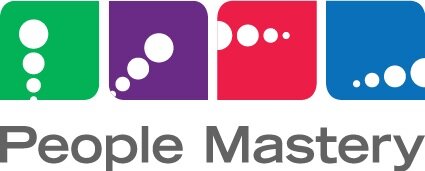7 tips to attract and retain people when you are not offering the ‘dream job’
What can you do to attract new team members and retain them a teeny bit longer when what you are offering is not a dream job, but more a job-for-right-now?
Savvy employers understand that not all jobs come with a ‘dream job’ tag. Some are more a means to an end than an end in themselves.
When you find yourself in this predicament, try the 7 tips below to set up for success:
1. Be honest
Take a ‘no surprises’ approach. Paint a realistic picture of the job to your potential team member, and if there are challenging aspects to the role, be upfront about them in the recruitment process.
As an HR colleague of mine once shared with me about her new role, “it’s exactly what it said on the box”.
That’s what you want your new team member to be feeling when they join you.
If you oversell the role, chances are that your new team member will experience new hire’s remorse (like buyer’s remorse, only with a worse taste left in your mouth).
Just lay it out for them as it is, don’t dress it up. If they come in with realistic expectations, chances are the role may even seem a wee bit better than they thought.
2. Speak up about what you can offer
Unless you’ve been on a silent retreat in a remote cave for the last 5 years, you’ll be well aware of the pain the hospitality sector (amongst many others) is experiencing in recruiting and retaining staff.
But how do you attract quality people to roles where there are daily interactions with challenging customers, early starts and late finishes, long hours on your feet, not to mention the odd Gordon Ramsay-esque expletive-laden chef banging on in the kitchen?
Maybe you can offer shift flexibility to allow team members to manage study or a second job?
Maybe you have a great team culture which makes your organisation an awesome place to work?
Maybe you can guarantee a minimum or maximum package of hours which works well for the team member concerned?
Think laterally and beyond the role. What unexpected benefits might there be working for your organisation, that other businesses like yours don’t offer?
3. Understand their dream
You’ve got them interested. How can you seal the deal? Ask your potential new recruit what their dream is.
Maybe it’s the same type of job, but in a different location. Maybe it’s a completely different role; they’re currently studying, but their course will take a few years to complete.
Maybe they want to travel the world, and this job is funding their ticket outta here! Maybe they just don’t know.
When I look back on my own career, I was a bit fuzzy about my dream in the beginning. I’ve had many jobs that were less than ideal. Many of them were ‘jobs-for-right-now’.
The job that funded me through my studies, the job that paid the bills as I came to grips with working in a new country, the job that gave me some experience that I could add to my resume, the job that got me into a larger organisation so I could potentially find a role that suited me better.
With the benefit of hindsight, I’ve realised that these experiences helped me find my path to the job of my dreams.
I’m confident that when you take the time to ask your team member ‘what’s your dream?’ - which might be a question no potential employer has asked them before - they’ll be able to share with you at least a rough sketch of what their dream looks like.
If they share their dream with you and you think that it’s got more in common with working for NASA than the role you’re offering, don’t panic! Read on for Step 4!
4. Link this ‘job for right now’ to their dream
Now you know their dream and you know what this current role offers. Time to make the connection.
If you’re offering a role in hospitality but their dream is to become a florist, this ‘job for right now’ may help the person develop valuable customer relationship and communication skills. It might also allow a schedule flexible enough to attend TAFE to undertake a floristry course.
If the role you’re offering is a sales support role in a call centre, but their dream is to become a teacher, this job for right now may help develop their coaching, training and feedback skills as they support team members - valuable skills for teachers.
Maybe you can’t draw a link between the skills of the current role and the dream job. Think differently.
Perhaps the job is able to be done remotely - so they can move to their desired location and have the stability of the current role.
Perhaps it’s simply providing the money they need to save for the next step - every pay packet takes them one step closer to their dream.
The more you reflect, the more connections you will be able to make. And if you’re really struggling, ask them. What stepping stones to their dream job, however small, can they see in this role?
5. Help them recognise their strengths
If the person you’re meeting with is unsure of their dream, you have an opportunity as their prospective employer to help them clarify what they really want by helping them identify their joys, their frustrations, their superpowers and their weaknesses.
Shine a light on what they do well - their natural talents - and help them see who they can become. People who do this - we like to call them ‘enablers’ - attract good people into their teams.
Tools such as The Table Group’s ‘6 Types of Working Genius’, a self-assessment that helps people identify the type of work they truly enjoy, are a small investment that pay a huge dividend in showing a potential employee or new starter that you value them and genuinely want to help them work toward their dream job.
6. Check in regularly
Checking in regularly is good advice for any Manager with a new recruit.
It’s particularly important when you know that this person may not be with you for the long haul.
Having a regular time when you can discuss how they’re feeling, what they’re thinking, what’s working, what’s not working and more, allows you to be on the front foot.
You can flex when needed to ensure that they are feeling as engaged as possible with the role and the organisation, and you get the results you expect from them.
7. Ask for their help to recruit the next person
Chances are if you’re trying to fill a job for right now, you’re going to have fairly frequent turnover.
When you have someone who has successfully fulfilled the role, invite them to help you find their successor - someone who they think might work well in the role, even for a short time.
You might consider implementing a Finder’s Fee or some other reward when a successful new team member is hired.
When the roles you’re trying to fill are a little more drag than dream, I hope these tips will help you make the best of what you have to offer and enable your organisation to become a stepping stone to your team members’ longer term dreams.
Interested to learn or do more?
Please feel free to contact us for help if you’d like more support to:
Recruit and develop your team
Find your very own ‘job of your dreams’
Discover your team members’ joys, frustrations, powers and preferences using the Working Genius profile.







